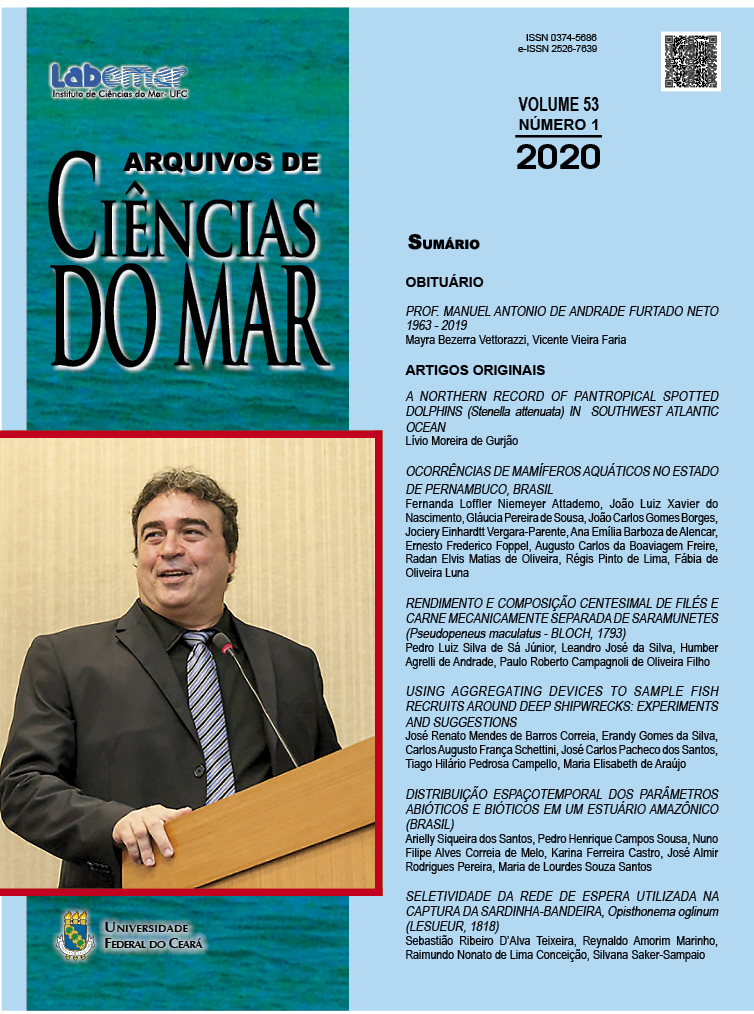MANUEL ANTONIO DE ANDRADE FURTADO NETO 1963 - 2019
DOI:
https://doi.org/10.32360/acmar.v53i1.44822Abstract
Manuel Antonio de Andrade Furtado Neto was a pioneer researcher in the field of population,
conservation, and evolutionary genetics of marine vertebrates in Brazil. He was one of the first
scientists in the country to apply the now-famous polymerase chain reaction (PCR) technique to
aquatic organisms. He provided, in the 1990s, the first genetic evidence to suggest that the Guiana
Dolphin (South American Atlantic Coast) and the Tucuxi (Amazon Basin) were distinct species. At
that time, Guiana and Tucuxi dolphins were still considered a single species, Sotalia fluviatilis –
the species level divergence between them was only confirmed by other colleagues in the following
decade. He was also at the forefront of applying techniques of molecular markers to other marine
organisms in the country, including snappers, tuna, lobsters and sharks. Among these, the study of
the molecular phylogeny of angelsharks stands out, having been, until now, the only study to
generate and make publicly available a DNA sequence of the Critically Endangered Argentine
Angelshark, Squatina argentina.
Downloads
Published
Issue
Section
License
1. Proposta de Política para Periódicos de Acesso Livre
Autores que publicam nesta revista concordam com os seguintes termos:
- Autores mantém os direitos autorais e concedem à revista o direito de primeira publicação, com o trabalho simultaneamente licenciado sob a Licença Creative Commons Attribution que permite o compartilhamento do trabalho com reconhecimento da autoria e publicação inicial nesta revista.
- Autores têm autorização para assumir contratos adicionais separadamente, para distribuição não-exclusiva da versão do trabalho publicada nesta revista (ex.: publicar em repositório institucional ou como capítulo de livro), com reconhecimento de autoria e publicação inicial nesta revista.
- Autores têm permissão e são estimulados a publicar e distribuir seu trabalho online (ex.: em repositórios institucionais ou na sua página pessoal) a qualquer ponto antes ou durante o processo editorial, já que isso pode gerar alterações produtivas, bem como aumentar o impacto e a citação do trabalho publicado (Veja O Efeito do Acesso Livre).

